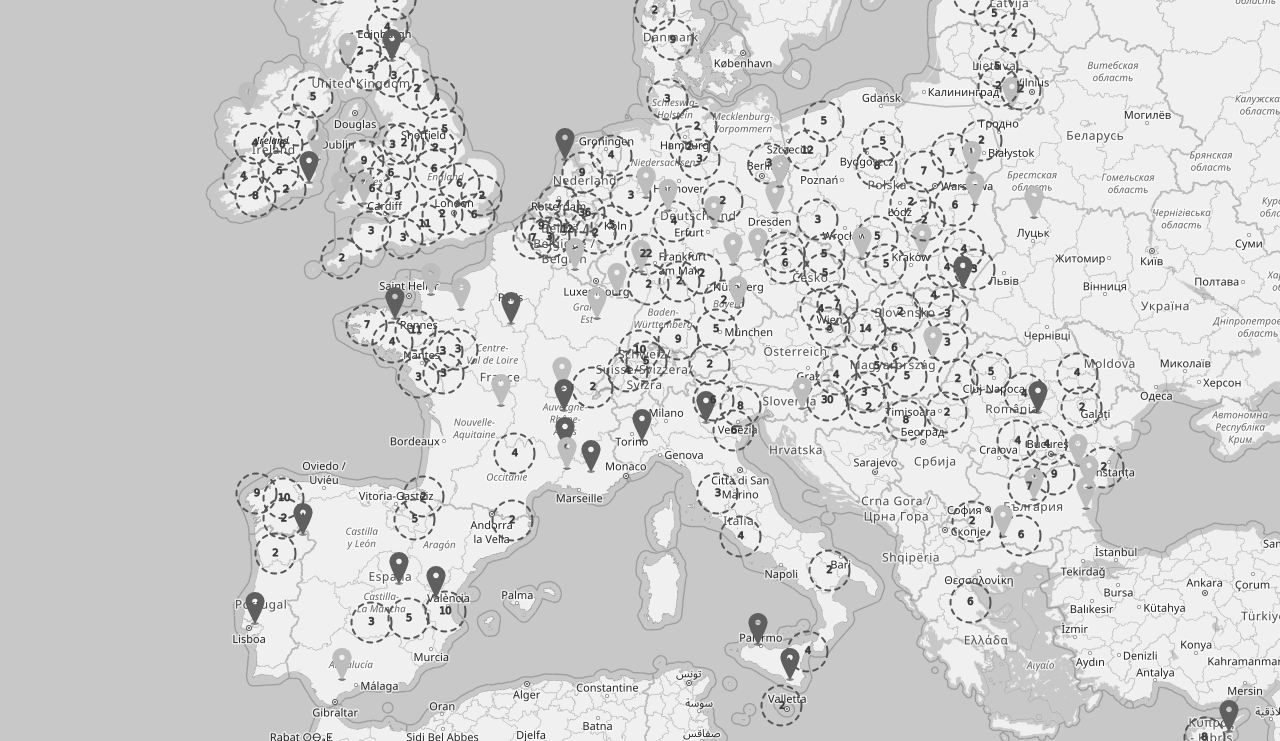AgriDemo-F2F partners, in cooperation with Plaid project, have developed an European-wide, geo-referenced inventory, to provide a global view of on-farm demonstration activities and knowledge exchange modalities between farmers.
Leaded by WP2, the inventory covers the EU member states, plus Switzerland, Norway and Serbia. Data collected reveal a wide range of this type of activities, that will be properly assessed during the next phase of the project. The current database compiles data of almost 400 organisations and more than 700 farms involved in on-farm demonstration activities. These have participated in the survey providing information related to the environment and people engaged on demonstrations, helping to identify enabling factors and conditions for this kind of activities. For example, who and how is the demonstrator, profile of the audience, what’s the motivation, the different demonstration’s topics, formats, resources and means for the demonstration, etc.
As a first step, data have been analysed per country and results were presented during the FarmDemo Supra-regional meetings that took place in Leuven, Krakow and Venice in February and March 2018.
Furthermore, this comprehensive list of farms and organisations linked to demo activities is currently displayed as a geo-referenced map and it will be the seed for the FarmDemo Hub, to be launched in 2018. FarmDemo Hub aims at connecting those actors engaging at demonstrations, providing them with resources, tools and a meeting space to enhance peer to peer learning. Hence, once the Hub is fully operative, any farmer carrying out demo activities, or those interested on attending, will be able to become members of the FarmDemo virtual community and take full advance of the platform.
In parallel, during the next months, near 100 farms of the inventory will be source for a deeper analysis. Objective of these case-studies is to reveal what makes a demonstration farm successful, compiling best practices, lessons and gathering resources contributing to the effective knowledge exchange between farmers.

